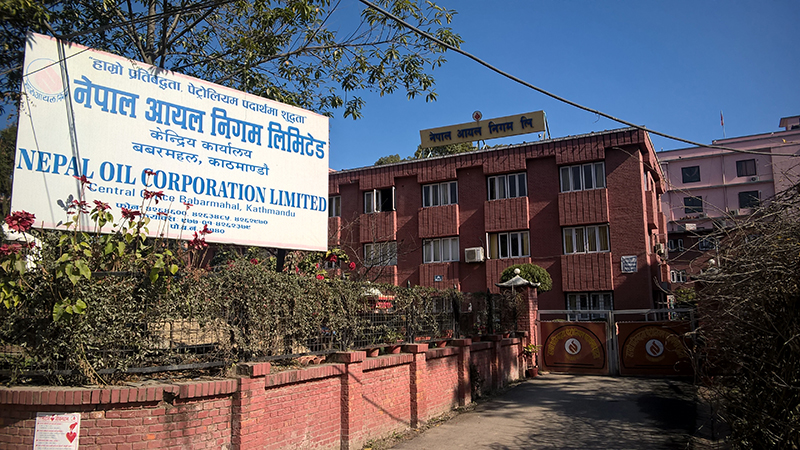Size of PSF balloons to Rs 3.5bn while fuel prices rise constantly
Kathmandu, January 2
Though the government had set up a price stabilisation fund (PSF) three years back with an objective to contain extreme volatility in the price of petroleum products, the failure of Nepal Oil Corporation (NOC) to utilise the fund has hit fuel customers lately.
While more than Rs 3.5 billion that has been collected in the PSF since July 2014 remains idle, NOC has increased the price of petroleum products as many as three times in the last one month. Moreover, the government collects the money for the PSF from customers by levying an extra 0.5 per cent tax on the cost price of every petroleum product citing that the fund will be used to stabilise fuel price.
However, the fund has not benefited customers so far. Had NOC mobilised the PSF to control increasing price of petroleum products, this would have provided some relief to customers.
Madhav Timalsina, president of Consumers’ Right Investigation Forum, opines that the government should dissolve the PSF and stop levying extra taxes on fuel from customers if the fund is not being used to benefit customers.
“While fuel price is constantly rising, such a huge amount of fund meant for controlling fuel price hike has remained unutilised. Neither NOC nor the government is concerned for the well-being of customers,” lamented Timalsina.
In fact, the state-owned fuel supplier has increased the price of petrol by four rupees per litre, diesel and kerosene by five rupees per litre each, and the price of liquefied petroleum gas (LPG) by Rs 50 per cylinder since December 8 citing the surge in price of petroleum products in the international market.
NOC officials, meanwhile, said that it is beyond NOC’s jurisdiction to dip into PSF to maintain fuel prices.
“Though the PSF was set up to control fluctuations in the price of petroleum products, NOC management does not have the authority to mobilise the fund. Only a separate committee of the fund led by minister for supplies can take necessary decisions regarding the PSF,” said Sushil Bhattarai, acting deputy managing director of NOC.
However, Bhattarai opined that the price of petroleum products should be determined as per global fuel prices and such funds should be used only in cases of emergency.
Similarly, Bhattarai also believes that the government should use the sum collected in the PSF to compensate NOC’s current loss.
“We had implemented auto pricing mechanism for petroleum products to ensure that NOC will not have to face losses. However, as a result of different
restrictions placed time and again on the auto pricing mechanism, NOC has been bearing losses despite implementing the mechanism,” said Bhattarai.
As per him, NOC has been bearing monthly loss amounting to almost Rs 260 million at present. Currently, NOC has been enjoying profit on all petroleum products except LPG. As per the rate of Indian Oil Corporation (IOC) for January, NOC is bearing a loss of Rs 208.3 per LPG cylinder.






